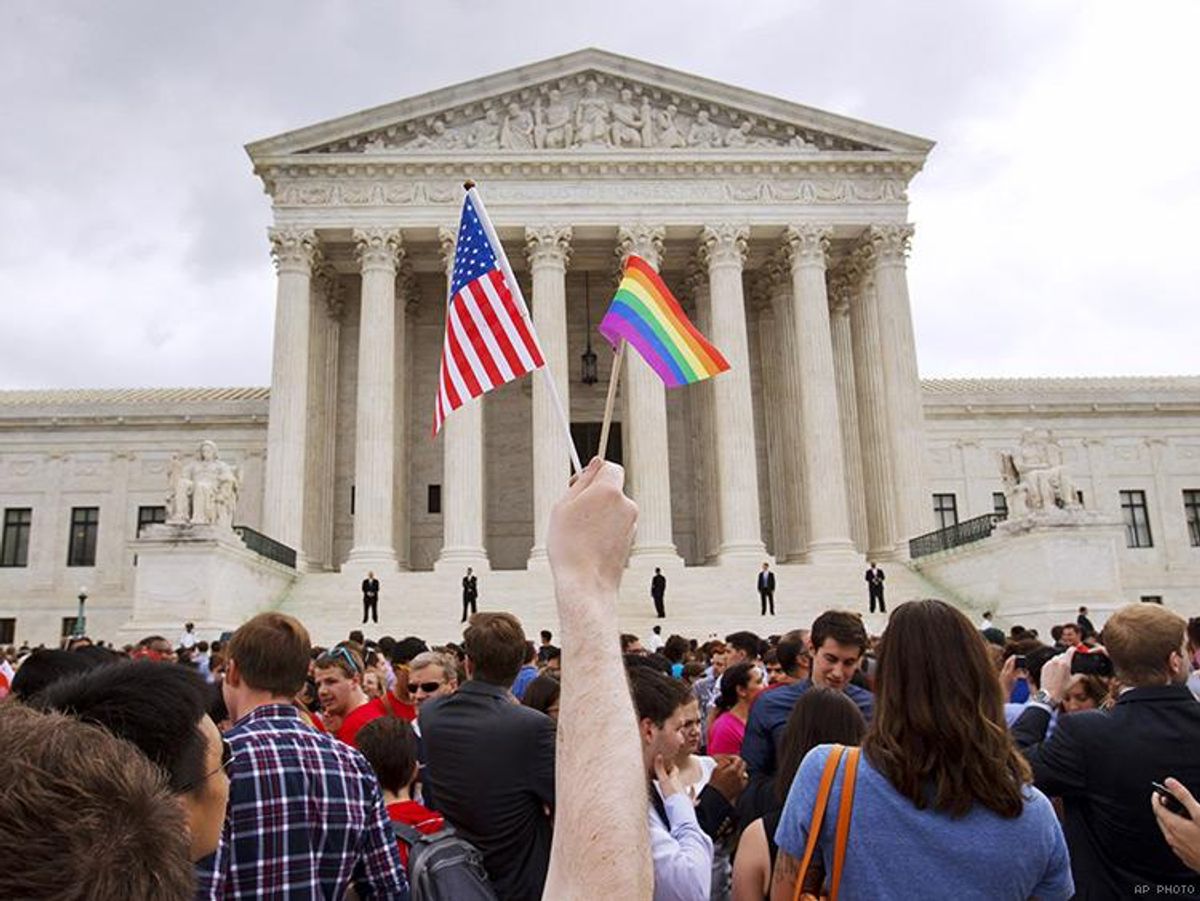Now that Donald Trump has won the presidential election, we are hearing from many same-sex couples who are concerned their marriages may be challenged or invalidated. We are also hearing from couples who are not yet married but worried they may lose the right to marry under the Trump administration.
While there are many reasons for concern about the new administration, the freedom to marry and especially the security of our existing marriages are not in serious or immediate jeopardy.
First of all, under any scenario, there is no realistic possibility that anyone's marriage will be invalidated. The law is very strong that if a marriage is valid when entered into, it cannot be invalidated by any subsequent change in the law. So people who are already married or planning to marry should not be concerned that their marriages can be taken away. In one notable recent example, when California's Proposition 8 passed in 2008, many couples were worried their marriages would no longer be valid. The California Supreme Court unanimously ruled that Prop. 8 had no effect on the validity of same-sex couples' existing marriages.
It is more important than ever that married same-sex couples continue to live their lives as spouses openly and without fear. If you or anyone you know encounters any problem with your marriage being fully respected, contact NCLR or another LGBT legal group immediately.
For individuals who are not currently married but who may wish to marry in the future, it is also unlikely that the U.S. Supreme Court will reverse its 2015 ruling that same-sex couples have the fundamental right to marry. For one thing, all five justices who were in the majority in the court's 2015 decision are still on the court. Overturning that decision would be impossible under the current court even if an anti-marriage equality justice is appointed to replace Justice Scalia.
But even if there were further changes in the court's membership sometime in the next four years, there are important reasons to believe the court would be reluctant to revisit its marriage decision. The doctrine of stare decisis -- which means that courts generally will respect and follow their own prior rulings -- is a powerful force for restraint on the court, and the court rarely overturns an important constitutional ruling so soon after issuing it.
In a series of major decisions beginning in 1996, the court has repeatedly recognized that the Constitution protects lesbian, gay, bisexual, and transgender people against hostile and discriminatory action by the government. These decisions have created a powerful body of constitutional law recognizing the common humanity and equal citizenship of LGBT persons. Most recently, in his opinion for the court in the marriage cases, Justice Kennedy wrote that under "the Constitution, same-sex couples seek in marriage the same legal treatment as opposite-sex couples, and it would disparage their choices and diminish their personhood to deny them this right."
Even a very conservative Supreme Court would not lightly discard such fundamental principles of equality and fairness for same-sex couples after reaffirming them in case after case for the past two decades. In addition, the court is undoubtedly aware that a large and growing majority of Americans strongly support the freedom of same-sex couples to marry. This too would give any future court pause before stripping away cherished constitutional freedoms from millions of Americans.
In short, undoing marriage equality would be extremely difficult, and there are good reasons to believe that the freedom to marry will not be at serious risk in the next four years or beyond.
SHANNON MINTER is the legal director for the National Center for Lesbian Rights. He also was one of the lawyers who helped successfuly overturn the federal prohibition on same-sex marriage.

















































































